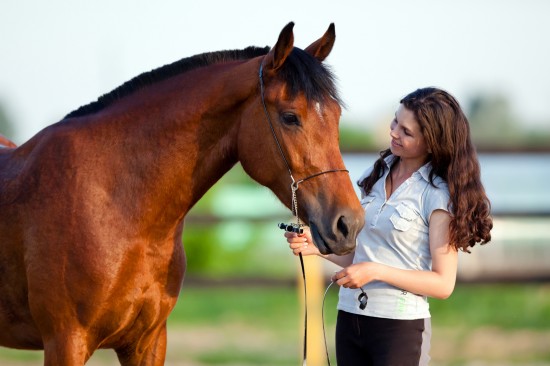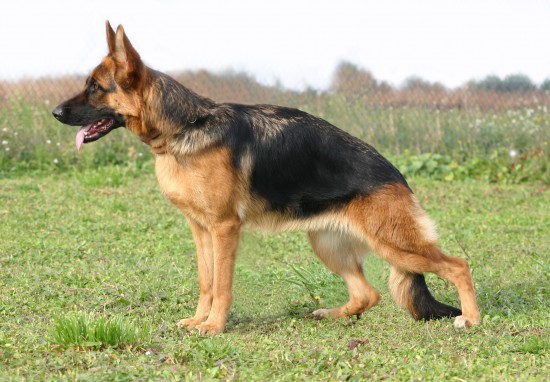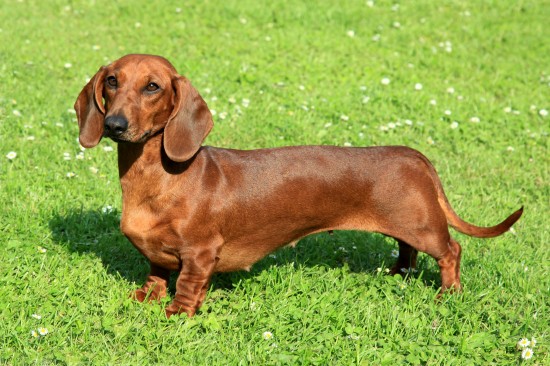

Horses have mesmerised people for centuries. They have carried men over vast distances to do battle with their enemies, helped in the workplace on farms and industries. They are strong, magnificent creatures and they boast supreme strength. However, it is their tremendous strength and will power that can be quite scary too, especially if you happen to be in the wrong place at the wrong time. An unruly horse or pony is a hard animal to handle, and anyone who does is at risk of getting hurt. The question that needs to be asked, is why do some horses and ponies behave so badly and when they do, how should you handle them and stay safe?
Horses by nature are flight animals, they're always on the look out for predators and if they suspect there's something that is about to attack them, they'll instinctively bolt for their lives. However, several strides into their flight their instinct also tells them to stop and look around to see if they are still being chased.
In the wild, a herd is controlled by the alpha-mare and she decides who moves up in the ranks and who stays where they are. Domestic horses and ponies still retain many of their natural instincts and this includes who they see as boss. There are times, however when they forget who this is and they also forget their manners. However, this behaviour can also be interpreted as a lack of respect or just a horse being downright naughty – but in all instances and for whatever reason, the behaviour needs to be brought under control.
Horses can show a lack of respect towards you in many ways which includes :
Although some of these actions may appear harmless enough, others can prove to be quite dangerous and would need to remedied as soon as possible. However, any of the behaviours mentioned above would just get worse if a horse or pony is allowed to get away with them. This means it ultra important to take the right kind of action to stop them from repeating things that show they don't have any respect for you.
The first step in correcting a bad behaviour is to understand why a horse is doing it in the first place and to do this, it's really important to show the horse who is boss using the correct body language. If your horse's behaviour makes you nervous, you should leave it to an expert rather than face your horse half heartedly which could just make matters worse. Correcting bad behaviour in horses is all about shaping by doing so in a pleasant, safe manner which ensures it's an enjoyable experience for both handler and horse.
If a horse behaves badly and lacks respect, the last thing you should do is attempt to bully them into behaving themselves because it just won't work. Firstly, a horse is much stronger than you are and secondly, they are sensitive creatures so being heavy handed with them will just create other problems like becoming head-shy as well as just being a way of treating horses that is downright wrong.
A horse that reacts to people because they are scared of them is not a happy horse and in the end, their behaviour will just get worse through their fear. By far the best way to correct bad behaviour, is to build a strong partnership and bond with a horse so they start to show respect. As a bonus, a strong bond will also encourage a horse to turn to their handlers for guidance when they are scared or unsure of what to do.
A horse is always happier if they have a leader they can respect. But in order to become that leader, you need to be consistent in the way you handle them, always giving clear signals of what you expect of them. This role is left to the herd's alpha-mare in the wild and you need to gain the same respect from your horse as she would, and the only way to do this is to be consistently kind but firm with your horse especially when they behave badly.
A horse will quickly pick up on your body language but this is something you may need to learn so it then comes naturally when you're around your horse. Body language is all important and every action needs to done confidently without any hesitation. When a alpha-mare is unhappy with a horse, she becomes aggressive towards them. However a handler should be firm and use “voice” and determined movements which have the same effect on a horse that's behaving badly.
Knowing when to put the pressure on a horse when they are behaving badly is crucial to correcting it and includes getting into the horse's space, pushing them out of their comfort zone without being mean to them but always remaining very firm. Your attitude has to be unbending and when they stop being naughty, it's time to take the pressure off again. If they repeat the bad behaviour, you have to put the pressure on again immediately without any hesitation, and keep it on until the horse settles and starts doing as they are told. The process may have to be repeated many times, but in the end a horse will get the message.
Understanding when to put the pressure on a horse and when to take it off again, is the key to teaching your horse to respect you – and as a bonus they will really enjoy it when the penny finally drops.
One great way to learn how to use your body language as a way to control a horse is to lunge them as regularly as you can. Not only does it teach a horse to use themselves but it teaches you to recognise when they might be naughty which you can read in the way move and react on the lunge. Preventing an action before a horse actually does anything is a brilliant way to begin to really understand your horse and they soon understand that you do every time you stop them before they actually do it.
It takes a lot of time and patience to understand a horse's personality. Reinforcing set and acceptable rules creates a strong bond between horse and handler. A horse's spirit should never be broken but rather shaped into something that's enjoyable so that being with and around them is a pleasant experience for all concerned.
 Six Health Issues To Look Out For In Kittens
Six Health Issues
Six Health Issues To Look Out For In Kittens
Six Health Issues
 More About The Lovely Entlebucher Mountain Dog
More About The Lo
More About The Lovely Entlebucher Mountain Dog
More About The Lo
 Is A Dogue De Bordeaux The Right Dog For You?
Is A Dogue De Bor
Is A Dogue De Bordeaux The Right Dog For You?
Is A Dogue De Bor
 Health Issues Commonly Seen In German Shepherds
Health Issues Com
Health Issues Commonly Seen In German Shepherds
Health Issues Com
 The Different Types Of Coat & Colour Variations In Dachshunds
The Different Typ
The Different Types Of Coat & Colour Variations In Dachshunds
The Different Typ
Copyright © 2005-2016 Pet Information All Rights Reserved
Contact us: www162date@outlook.com